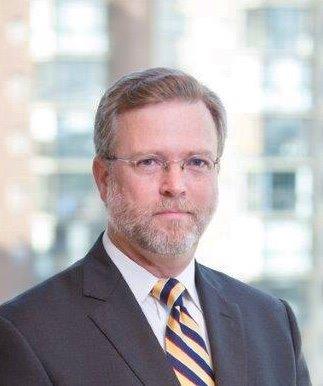by Whitney Hopler, Communications Manager
Well-being education is vital in today’s complex world, and it has the power to completely transform people’s lives for the better, says Kerry D. Kirk, a Managing Director at the global investment firm Cambridge Associates, LLC. And that is why Kirk has supported our center’s work recently with a significant financial gift that created an endowment for the center.
“Our center continues to flourish from generous donors like Kerry Kirk, who believe in our mission and values,” says Nance Lucas, our center’s Executive Director. “Kerry’s commitment to this new frontier of education will allow many young people to benefit from our well-being resources. His gift is a belief that the world will continue to tip toward greater human flourishing.”
Kirk says that he was motivated to support our center because of its broad and powerful impact. “What has most impressed and energized me to support the center is its holistic three-facet approach to address well-being at the level of the individual, the local community and the broader world beyond Mason,” he says. “This allows for having a meaningful impact in the lives of people across the age and stage-in-life spectrum. The center provides for a matching of content, programs and tools with the variation in the needs of them by these three communities. For example, having scholarship and curricula for students can implant the value of the science of well-being long before most of us come to realize it. Then, professional certifications and custom courses for the local community allows for the content to enter and spread throughout local businesses and organizations. Finally, by having Research Scholars, Fellows and programs for leadership excellence, the center can have a direct influence in the direction of the field globally.”
Learning about well-being and practicing it can benefit everyone, since well-being goes to the core of what all people are searching for in life, says Kirk. “If we value our existence, then we tend to realize that what we truly need more than anything is to be well as long as possible. Defining what it means to be ‘well’ and thus how to attain it can be very difficult and a lot of work. But it should be the work of our lives. More than happiness, I believe most humans seek a certain sense of meaning and vitality. In addition, we seek peace of mind, equanimity and resilience in the face of all the uncertainty and apparent disorder in life.”
Kirk decided to make the study and pursuit of well-being “a central focus of my life” after experiencing a number of life stressors that made him realize the importance of prioritizing well-being. “There is the famous maxim that ‘you only go around once,’ he says. “At some point in our lives this message arises in our consciousness at a level that cannot be ignored. For most of us, that doesn’t typically occur until crises of mental or physical health or other challenges take center stage, as was the case with me.”
Today Kirk practices well-being in multifaceted ways. “On the whole I define well-being as encompassing my physical health, mental health and my spiritual health. I believe these three are interrelated. For the most part, I place a strong emphasis on the following: good nutrition and sleep habits, daily forms of meditation, the pursuit of knowledge (both secular and spiritual), robust volunteerism and service to others, and a strong social circle of friends and family.“
Our center’s multifaceted work with well-being provides ways for people to pursue well-being in whatever ways are most useful for them. Kirk says he would like to see that work grow in the future. “Going forward, I would like to see these aspects continued and enhanced as resources become available. Ideally, Mason will become appropriately viewed as a major leader in well-being education for organizations far beyond our campuses, impacting society overall.”
As a professional who regularly advises nonprofit institutions on their planning and finances, Kirk says he sees great potential for our center’s growth. “The center’s growth will be a function of our collective ability to demonstrate its value to Mason students, the community and broader society. This truism poses a challenge, however, as the benefits of human well-being are not as readily evident or measurable as the widgets of business production, or the value creation of astute stock portfolio management. This puts the onus on the believers in this field to step up and lend whatever talents and treasure they have in making the case. Over time, the benefits of such education surely become evident to the individuals who have undergone it. The research studies back this up. To grow the center and its impact, everyone who benefits from the center should become advocates of the center.”
Kirk encourages all who appreciate our center’s work to contribute something to support it. “Those who understand the value of this education, those who understand how transformative well-being practices can be and know how desperately needed such education is in today’s ultra-complex world really should consider stepping out and becoming true supporters,” he says. “Lend a hand. … The center’s role is to be seen as a national and global leader in helping people navigate confusion, define the terms of well-being, and present the science, tools, and practices that empower people to live well. This can only be done with significant private financial support from individuals, corporations and foundations. Fortunately, the corporate world is coming around on this. In the meantime, I hope this article may motivate readers to inquire about the center and approach us.”
If you would like more information about supporting well-being initiatives you can learn more here, or contact Kevin Augustyn, director of development, at 703-993-3503. We’re deeply grateful for your generosity!

